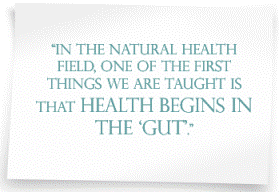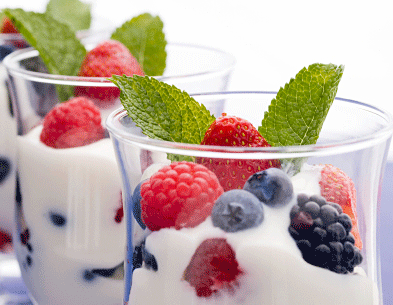One in five adults experiences depression every year. Many of us have been affected by depression personally or through someone we know. The cause of depression is not fully understood but it has been linked to a number of challenges including a traumatic life events, chronic stress, poor immune system, hormonal disorders, nutritional deficiencies, a high sugar diet, and artificial sweeteners. While it’s important to see a doctor for a diagnosis and treatment, it’s pretty easy to see how nutritional approaches could be helpful to minimizing these potentially contributing factors.
In the natural health field, one of the first things we are taught is that health begins in the “gut”. The notion that mental health relates to a healthy gut has been around for several decades too! Dr. Julius Wagner-Jauregg, a psychiatrist who won a Nobel Prize in 1927, wrote: “Biological mediators primarily designed to combat pathogens may affect the course of psychiatric disorders.” Numerous studies and abstracts have followed suit to look at the potential effect of gut bacteria on depression.

 Probiotics
Probiotics
The trillions of bacteria that reside in our small and large intestine have many jobs to do. Some help break down undigested food particles. Some help produce B vitamins, others support the immune system. There are hundreds, if not thousands, of other functions these little critters provide. A healthy gut flora has been shown to assist with a poor immune system, the effects of chronic stress, and nutritional deficiencies. Consuming foods high in probiotics can help reestablish flora. Organic foods such as yogurt and frozen yogurt with live bacteria, aged cheeses, kefir, and fermented foods such as pickles, sauerkraut, kimchee, and miso are all rich in probiotics. In addition, probiotic supplementation is another option to supply these excellent health promoters.
Fake Foods
In my opinion, one of the best things you can do for yourself is to eliminate fake foods from your diet. You can start with artificial sweeteners. They have been linked to a reduction of healthy bacteria in the gut as well as depression. Stevia is an all natural and excellent no calorie sweetener to use as a replacement. Processed foods run a close second for fake foods to eradicate. These foods are stripped of practically all nutritional value. The synthetic vitamins that are added back are better than nothing, but it’s surely not better than the real thing. If someone gave you a choice between receiving an original Monet painting or a photograph of it, which would you want?

Whole Foods
Many have heard that you are what you eat. When I said that to a client, he replied, “Then, I must be fast, cheap and easy.” In today’s fast paced world and new economy, it’s easy to fall into the fast, cheap and easy food habits. Just remember that whole foods provide vitamins, minerals, and phyto-nutrients in a natural form that your body’s innate wisdom craves. By choosing fresh organic fruits, vegetables, and meats, you avoid putting in herbicides, pesticides, and nutritionally deficient food in your body.
Essential Fatty Acids
Foods high in essential fatty acids such as DHA have been shown to be helpful with depression. Coldwater fish such as salmon and mackerel are high in these EFAs. In addition, EFA supplementation from Krill oil has been touted for positive effects on low mood.
Gluten Free
More people are finding that eliminating gluten from their diet makes them feel better physically and emotionally. Wikipedia defines gluten as “a protein composite that appear in foods processed from wheat and related species, including barley and rye. It gives elasticity to dough, helping it to rise and to keep its shape, and often giving the final product a chewy texture.” Many clients report that they tried a gluten-free diet and experienced less gas, bloating, upset stomachs, lethargy, achy joints and even depression.
Water
Our bodies are comprised of approximately 70% water and practically every bodily function requires it. Dr. F. Batmanghelidj, M.D., author of Your Body’s Many Cries For Water describes the water-depression connection this way, “With dehydration, the level of energy generation in the brain is decreased. Many functions of the brain that depend on this type of energy become inefficient. We recognize this inadequacy of function, and call it depression.”
Lastly, consider the impact of exercise, which has been shown to increase the endorphin levels which are the “feel good” hormones, in your brain. When exercising outside, you get a double benefit. Good old sunshine helps raise low Vitamin D which has been linked to both psychiatric and neurological disorders. Keep in mind that it’s hard to get enough vitamin D from sunshine during the winter months in our area; so supplementation may be useful.







